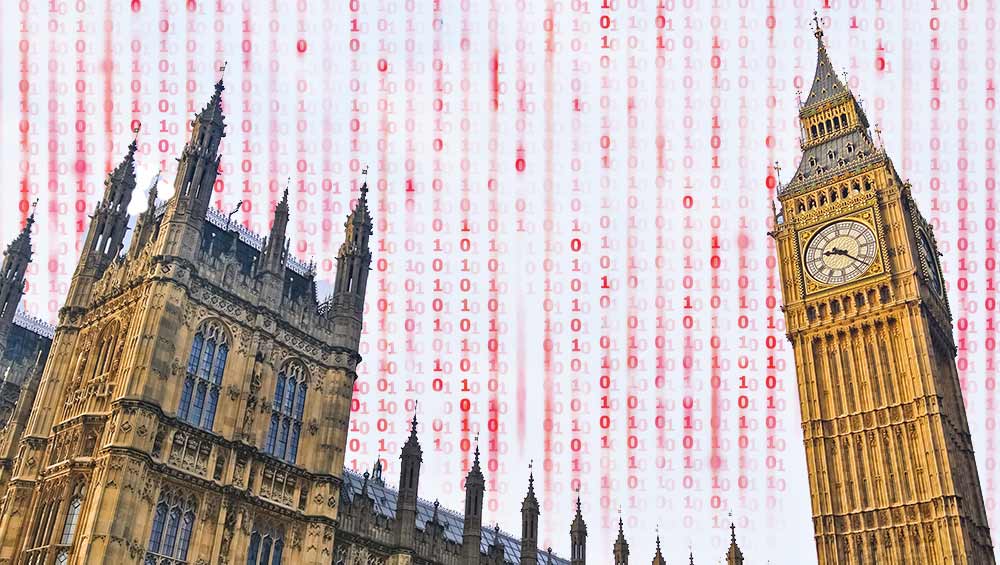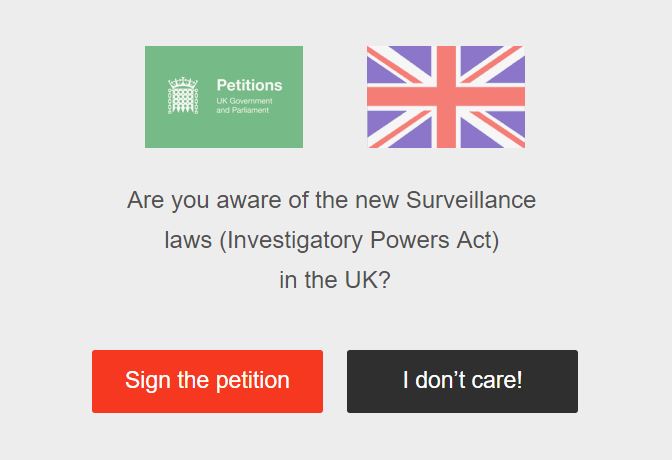Home Office faces EU court battle over Snooper’s Charter
ECJ emergency hearing could shoot down Investigatory Powers Bill


The European Court of Justice (ECJ) is set to scrutinise the UK government's plans for bulk data collection and retention at an emergency hearing on 12 April.
Its intervention was demanded by the Court of Appeal of England and Wales to help decidewhether existing government spying measures are incompatible withthe Charter of Fundamental Rights of the European Union.
Depending on the outcome of the hearing, the ECJ could scupper the government's plans to pass the Investigatory Powers Bill into law.
The Court of Appeal asked the ECJ to examine a casebrought by MPs Tom Watson and David Davis and their co-claimants, Peter Brice and Geoffrey Lewis, against Home Secretary Theresa May'sData Retention and Investigatory Powers Act 2014 (DRIPA).
DRIPA is a piece of emergency legislation that came into force in July 2014 and expires on 31 December 2016 that governs the interception of electronic communications data.
Watson, Davis, and their fellow claimants argued that two sections of DRIPA - Section 1 (powers for retention of relevant communications data subject safeguards) and Section 2 (definitions of the terms used in section one) -were unlawfulbecause they are incompatible with EU Charter articles outlining respect for private and family life and the protection of personal data.
In mid-2015, the High Court of England and Wales ruled in the claimants' favour.The Home Secretary appealed this decision, which would have seen a time limit for the enforcement of the unlawful sections run out on Thursday of this week.
Sign up today and you will receive a free copy of our Future Focus 2025 report - the leading guidance on AI, cybersecurity and other IT challenges as per 700+ senior executives
The government hopes that the Investigatory Powers Bill, which would compelinternet service providers to keep aspects of people's web browsing histories for 12 months, will replace DRIPA, but if the ECJ upholds the High Court's ruling, it could mean that the Investigatory Powers Bill is also incompatible with people's rights to privacy and data protection.
The bill is currently making its way through Parliament, under accusations that the government is trying to rush it into law.
It is now a three-way race to see which will happen first: Investigatory Powers receiving Royal Assent and becoming law, the ECJ issuing its ruling on the DRIPA case, or the EU referendum to decide whether or not the UK remains in the EU.
Read more about the Investigatory Powers Bill and its potential effect on businesses, the tech industry and privacy.

Jane McCallion is Managing Editor of ITPro and ChannelPro, specializing in data centers, enterprise IT infrastructure, and cybersecurity. Before becoming Managing Editor, she held the role of Deputy Editor and, prior to that, Features Editor, managing a pool of freelance and internal writers, while continuing to specialize in enterprise IT infrastructure, and business strategy.
Prior to joining ITPro, Jane was a freelance business journalist writing as both Jane McCallion and Jane Bordenave for titles such as European CEO, World Finance, and Business Excellence Magazine.
-
 The modern workplace: Standardizing collaboration for the enterprise IT leader
The modern workplace: Standardizing collaboration for the enterprise IT leaderHow Barco ClickShare Hub is redefining the meeting room
-
 Interim CISA chief uploaded sensitive documents to a public version of ChatGPT
Interim CISA chief uploaded sensitive documents to a public version of ChatGPTNews The incident at CISA raises yet more concerns about the rise of ‘shadow AI’ and data protection risks
-
 UK government's draft spying powers get leaked online
UK government's draft spying powers get leaked onlineNews Open Rights Group lifts curtain on Home Office's secretive consultation
-
 Liberty hits crowdfunding goal to take on Snooper's Charter
Liberty hits crowdfunding goal to take on Snooper's CharterNews Campaign group raises £40,000 to finance legal challenge against the government
-
 Blow for Snoopers Charter as EU court bans mass data collection
Blow for Snoopers Charter as EU court bans mass data collectionNews A legal challenge brought against DRIPA could take out its successor
-
 Porn site xHamster protests Snooper's Charter a week too late
Porn site xHamster protests Snooper's Charter a week too lateNews xHamster pushes visitors to sign anti-surveillance petition
-
 Investigatory Powers: Expect less scrutiny now Theresa May is Prime Minister
Investigatory Powers: Expect less scrutiny now Theresa May is Prime MinisterAnalysis Experts predict Theresa May's rise to PM will give the Snooper's Charter an easier ride
-
 Investigatory Powers bill’s security backdoors ‘won’t make iPhone illegal’
Investigatory Powers bill’s security backdoors ‘won’t make iPhone illegal’News Encryption backdoors survive proposed House of Lords amendments
-
 House of Lords hits out at Snooper's Charter
House of Lords hits out at Snooper's CharterNews Privacy and practicality worries could give the IP Bill a rough ride through the upper house
-
 FBI can hack computers with no warrant, US court rules
FBI can hack computers with no warrant, US court rulesNews No warrant was needed in child abuse case, even though one was obtained